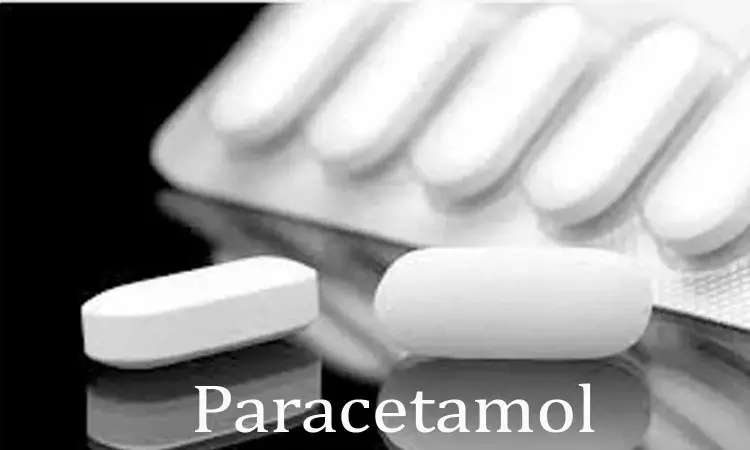- Home
- Medical news & Guidelines
- Anesthesiology
- Cardiology and CTVS
- Critical Care
- Dentistry
- Dermatology
- Diabetes and Endocrinology
- ENT
- Gastroenterology
- Medicine
- Nephrology
- Neurology
- Obstretics-Gynaecology
- Oncology
- Ophthalmology
- Orthopaedics
- Pediatrics-Neonatology
- Psychiatry
- Pulmonology
- Radiology
- Surgery
- Urology
- Laboratory Medicine
- Diet
- Nursing
- Paramedical
- Physiotherapy
- Health news
- Fact Check
- Bone Health Fact Check
- Brain Health Fact Check
- Cancer Related Fact Check
- Child Care Fact Check
- Dental and oral health fact check
- Diabetes and metabolic health fact check
- Diet and Nutrition Fact Check
- Eye and ENT Care Fact Check
- Fitness fact check
- Gut health fact check
- Heart health fact check
- Kidney health fact check
- Medical education fact check
- Men's health fact check
- Respiratory fact check
- Skin and hair care fact check
- Vaccine and Immunization fact check
- Women's health fact check
- AYUSH
- State News
- Andaman and Nicobar Islands
- Andhra Pradesh
- Arunachal Pradesh
- Assam
- Bihar
- Chandigarh
- Chattisgarh
- Dadra and Nagar Haveli
- Daman and Diu
- Delhi
- Goa
- Gujarat
- Haryana
- Himachal Pradesh
- Jammu & Kashmir
- Jharkhand
- Karnataka
- Kerala
- Ladakh
- Lakshadweep
- Madhya Pradesh
- Maharashtra
- Manipur
- Meghalaya
- Mizoram
- Nagaland
- Odisha
- Puducherry
- Punjab
- Rajasthan
- Sikkim
- Tamil Nadu
- Telangana
- Tripura
- Uttar Pradesh
- Uttrakhand
- West Bengal
- Medical Education
- Industry
High doses of paracetamol associated with increased poisonings: JAMA

Switzerland: The availability of 1000-mg acetaminophen (paracetamol) should be re-evaluated in order to minimize the potential for accidental poisonings, suggests a recent study in the journal JAMA Network Open. According to the study, there was a significant increase acetaminophen dispensing and acetaminophen-related poisonings after the approval of 1000-mg tablets in 2003.
Paracetamol is among the most widely used pain killers globally. While it is considered safe within the therapeutic range, intake when exceeds 4000 mg/d can lead to hepatotoxicity. Previous evidence has shown limited availability of large quantities of acetaminophen to be associated with decreased mortality and poisoning related to paracetamol. In Switzerland, 500-mg tablets are available over-the-counter (OTC) and, as of October 2003, 1000-mg tablets are available with prescription.
Adrian Martinez-De la Torre, wiss Federal Institute of Technology Zurich, Zurich, Switzerland, and colleagues evaluated the association of adding 1000-mg acetaminophen tablets to the Swiss market with utilization and poisonings.
For the purpose, the researchers evaluated 15 790 acetaminophen poison records from January 1, 2000, to December 31, 2018 using a quasi-experimental interrupted time series analysis. It included all calls for acetaminophen-related poisonings identified from the National Swiss Poisons Centre and all sales for oral acetaminophen tablets (prescription and OTC) dispensed between January 2000 and December 2018.
October 3, 2003 (Q4 2003), was defined as the intervention date, corresponding to the date of market entry for 1000-mg acetaminophen tablets in Switzerland.
The primary outcome was the number of quarterly acetaminophen-related poison calls to the National Poison Centre.
Key findings of the study include:
- Between 2000 and 2018, 15 790 acetaminophen-related poisoning calls were identified, of which 10 628 (67.3%) were regarding women, and the mean (SD) age of patients was 25.2 years.
- The interrupted time series analysis identified a significant increase in the slope for the number of reported poisonings following the intervention point, particularly for accidental circumstances.
- In the preintervention period, 120 of 961 poisonings (15.3%) involved a dose greater than 10 000 mg, while for the postintervention period, 1140 of 5696 (30.6%) had a dose larger than 10 000 mg.
- There was a rapid uptake in 1000-mg acetaminophen sales, while sales of the 500-mg tablet decreased slightly.
- Since 2012, a mean (SD) of 20.7 million 1000-mg tablets were dispensed quarterly compared with 2.7 million 500-mg tablets.
"This study found a significant increase in acetaminophen dispensing and acetaminophen-related poisonings in Switzerland following the approval of 1000-mg tablets in 2003. With the accumulating evidence of the potential for harm with high doses of acetaminophen, it is pivotal that public health measures aimed at restricting the availability of 1000-mg acetaminophen tablets be considered," concluded the authors.
The study, "National Poison Center Calls Before vs After Availability of High-Dose Acetaminophen (Paracetamol) Tablets in Switzerland," is published in the journal JAMA Network Open.
DOI: https://jamanetwork.com/journals/jamanetworkopen/fullarticle/2772304
Dr Kamal Kant Kohli-MBBS, DTCD- a chest specialist with more than 30 years of practice and a flair for writing clinical articles, Dr Kamal Kant Kohli joined Medical Dialogues as a Chief Editor of Medical News. Besides writing articles, as an editor, he proofreads and verifies all the medical content published on Medical Dialogues including those coming from journals, studies,medical conferences,guidelines etc. Email: drkohli@medicaldialogues.in. Contact no. 011-43720751


